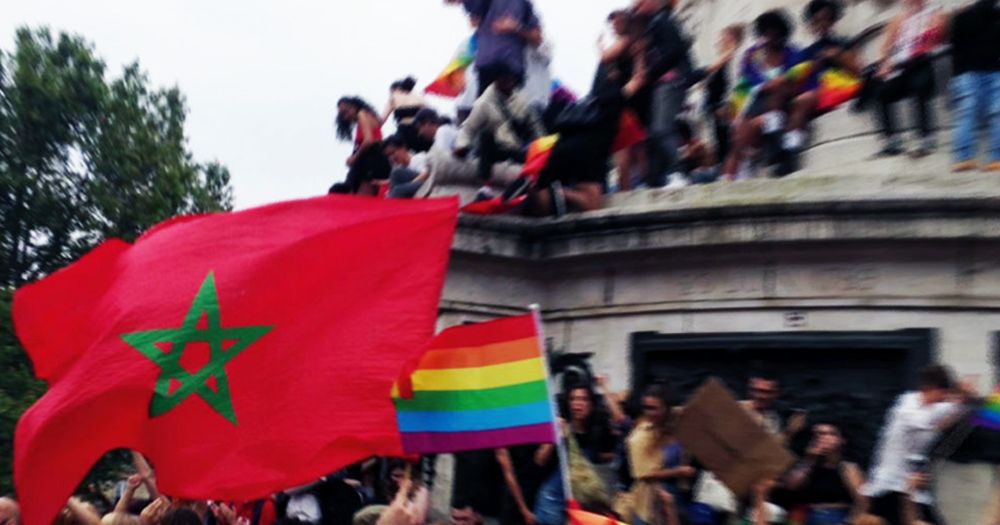Research cluster EROSS (Expressions Research Orientations: Sexuality Studies) at Dublin City University have announced an upcoming online conference, Queer Maghreb Matters, which will run for two days, March 4 and 5. The event will bring together researchers, academics, artists and activists to discuss queer theories and how relevant they can be in a conservative and heteronormative social space, by focusing on two countries of the Maghreb region, Algeria and Morocco.
EROSS is a DCU-based research group that focuses on sexuality studies, encompassing perspectives from a variety of disciplines, from human rights and law to arts, literature, music and many more, adopting an interdisciplinary and intersectional approach.
Professor Jean-Philippe Imbert and researcher Eva Reem Lebbar are the two main organisers of the event, which will be the first of its kind to be held in the British Isles. The aim of this new conference is to bring different voices and stances together and create a space where queer matters can be discussed openly, while also opening a new door to Arab studies in Ireland.
The political meaning of the word ‘queer’ will take centre stage in the conference, which will explore all the ways in which ‘queer’ challenges dualistic categories and established norms and how it brings people to ask new questions.
The conference will also discuss how queer theory is able to go beyond sexuality and gender and can be employed to analyse a wider range of phenomena.
Some of the main events of Queer Maghreb Matters include an interview with Abdellah Taïa, established novelist and filmmaker and the first openly gay Arab writer, who will talk about diasporic LGBTQ+ literature as well as his own work; a chat with Imam Ludovic Mohamed Zahed who performs same-sex Muslim unions and runs the first inclusive mosque in Europe; as well as a curated talk with artist Amina Zoubir, who will explore the question of the representation of women in public spaces.
— Abdellah Taïa (@AbdelahTaia) September 30, 2012
The conference will also feature two roundtables. One of them, led by journalist Rania Laabid, lawyer Ghizlane Mamouni and gender consultant Aisha Del-lero, will deal with the challenges that women face in the countries under examination and with how they have been invisibilised. The goal is to provide a platform for these women to have their voices heard when they are speaking about their own experiences in a homonormative context.
The second roundtable will give voice to Trans and non-binary activists both from the Maghreb and the diaspora, who will talk about what it is like to be queer and Muslim.
Diversity and inclusion are the central points of this event, which aims at giving a voice beyond invisibility and providing a platform that will allow people who are too often relegated to the margins to speak up about their own lives. Although the focus will be on today’s Algeria and Morocco, particular attention will also be placed on diasporic discourses on queer Arab issues. “We are also going to talk about the diaspora, about how it is easier to be yourself outside of your own country, which is something that the Irish people are going to relate to.” explains professor Jean-Philippe Imbert.
Some of the most relevant topics that the participants will address during the conference are how arts are used to express sexual politics in today’s Algeria and Morocco and how queer activists generate spaces and employ new strategies within their advocacy.
DCU and EROSS have organised other conferences on LGBTQ+ issues in the past, like the LGBTQ+ Asylum Seekers and Refugees Conference. If you want to know more about the programme of Queer Maghreb Matters, admission fees and other events that may be organized in the future, click here.
© 2022 GCN (Gay Community News). All rights reserved.
Support GCN
GCN is a free, vital resource for Ireland’s LGBTQ+ community since 1988.
GCN is a trading name of National LGBT Federation CLG, a registered charity - Charity Number: 20034580.
GCN relies on the generous support of the community and allies to sustain the crucial work that we do. Producing GCN is costly, and, in an industry which has been hugely impacted by rising costs, we need your support to help sustain and grow this vital resource.
Supporting GCN for as little as €1.99 per month will help us continue our work as Ireland’s free, independent LGBTQ+ media.

comments. Please sign in to comment.